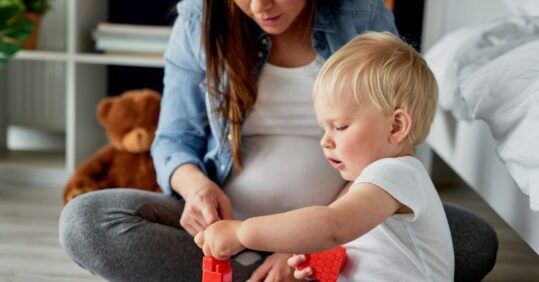Community teams reduce risk of mental health relapse after childbirth

Pregnant women with severe mental illness face a significantly lower risk of relapse when they give birth in regions where they have access to a community perinatal mental health team (CPMHT), new research reports.
The study led by King’s College London is the first of its kind to assess the effectiveness of community mental health teams who work with pregnant women and has shown the teams can be effective in preventing mental health relapses after birth.
The findings, published in Lancet Psychiatry, highlight the need for mental health services to work more closely with maternity services to effectively improve mental health outcomes.
Related Article: Government unveils ‘top priorities’ for women’s health in 2024
Pregnant women who have a history of acute mental illness such as bipolar disorder and severe depression are at a significantly increased risk of relapse in the first few months after giving birth. CPMHTs were rolled out in England in 2016 as part of a unique national initiative to improve access to specialists for women with perinatal mental health problems. The aim of CPMHTs is to enhance access to preventive care during pregnancy and to treat episodes of mental illness during pregnancy and after birth.
The researchers identified over 70,000 women who had given birth to a single baby and had been in contact with secondary mental health services in the ten years prior to pregnancy. The women were followed throughout pregnancy and afterwards to establish any relapses of mental health, defined as being admitted to a psychiatric hospital or being attended to by a crisis resolution team.
In areas where there was a CPMHT, the women had better access to mental health services during their pregnancy. Nearly a quarter of the women in areas with CPMHTs accessed mental health services during their pregnancy. This compared to 17.9 per cent of women where there was no CPMHT.
Acute relapses were less common in areas with a CPMHT, with 3.6 per cent of women (or 1117 women) relapsing compared to 4.5 per cent (or 1745 women) where there was no CPMHT.
Related Article: Labour promises ‘healthiest ever’ generation of children
Professor Louise Howard, from King’s College London, said: ‘The period after birth can be a time of increased risk for women with severe mental illness. It is very encouraging to see that having a community perinatal mental health team in an area is associated with significantly reduced rates of relapse after birth – a time when mothers want and need to be well and at home with their infants.’
The researchers say that pregnant and post-natal women can face many barriers to mental health care and that the Government’s investment in CPMHTs has made ‘a real difference’, allowing women to access the treatment they need.
The improvements in mental health outcomes were, however, set against findings that showed women who had access to CPMHTs during pregnancy were also more likely to give birth to underweight or stillborn babies or face an increased chance of neonatal death when compared to the women who had no access to CPMHTs.
Related Article: E-cigarettes help pregnant smokers quit without risk to pregnancy
Professor Dharmintra Pasupathy, a study co-author from the University of Sydney, said there was no simple explanation for these findings and that further research was needed. He said: ‘It may be that more intensive psychiatric support available in a region may negatively affect the midwifery and obstetric support that women with severe mental disorders receive during pregnancy and childbirth. This is something that we urgently need to study in greater depth as the full facts are not clear.’

See how our symptom tool can help you make better sense of patient presentations
Click here to search a symptom

